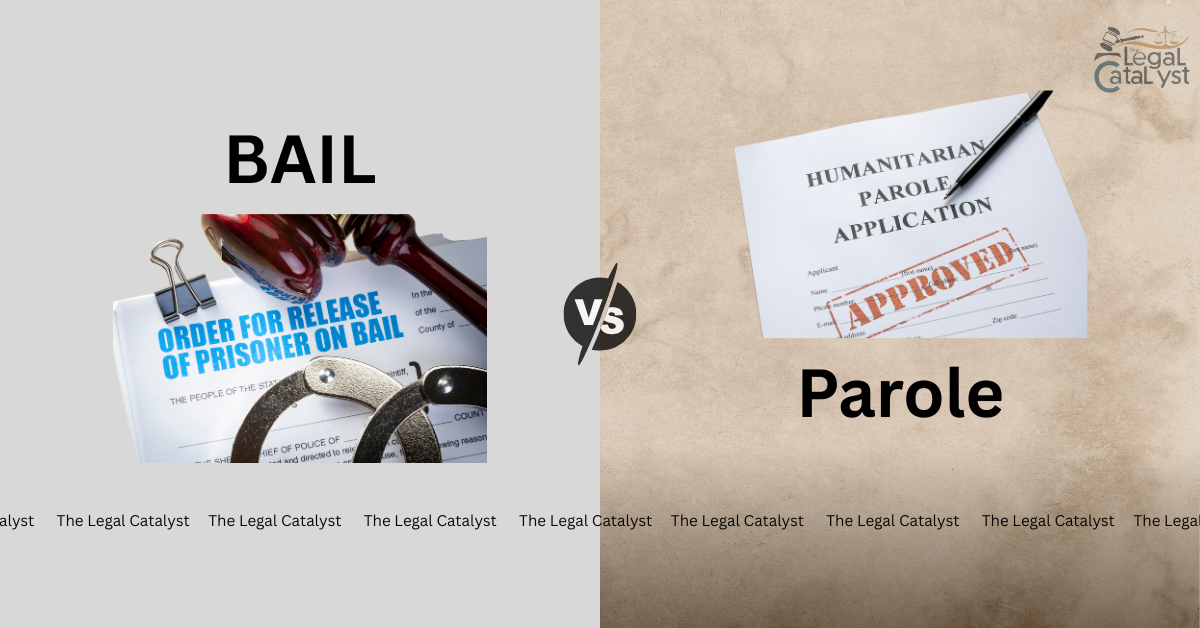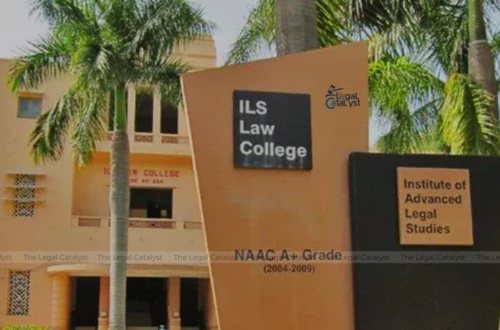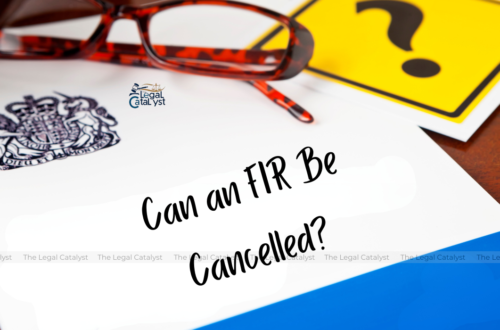Introduction
Bail and parole are two legal terms often used interchangeably by the public. In reality, they are vastly different in purpose, procedure, and application. It is essential to understand the difference between bail and parole in India. This is crucial for anyone dealing with criminal law, whether you’re an accused, an advocate, or law student.
This post breaks down both concepts with examples and a side-by-side comparison for easy understanding.
What is Bail?
Bail is a legal mechanism that allows an accused person to be released from custody while awaiting trial. It is based on the principle that a person is presumed innocent until proven guilty.
Key Points:
- Granted before or during the trial
- Seeks to ensure that the accused attends court proceedings
- May involve financial sureties or personal bonds
- Types: Regular Bail, Anticipatory Bail, Interim Bail, Default Bail
- Relevant laws: Sections 437–439 CrPC / Sections 480–484 BNSS
💡 Example: A person arrested for theft may apply for regular bail before a magistrate court.
What is Parole?
Parole is a temporary release. It is granted to a convict (a person already found guilty and serving a sentence) under specific humanitarian grounds. Alternatively, it may be granted for good conduct.
Key Points:
- Granted after conviction, during sentence
- Temporary release from prison, not from the justice system
- Common reasons: Family emergencies, illness, marriage of close relatives
- Types: Custody Parole, Regular Parole
- Subject to strict monitoring and conditions
💡 Example: A person serving a 10-year sentence is granted 2 weeks’ parole to attend a parent’s funeral.
Difference Between Bail and Parole (Table)
| Criteria | Bail | Parole |
|---|---|---|
| When Granted | Before/while trial is ongoing | After conviction during sentence |
| Applicant | Accused person | Convicted prisoner |
| Authority | Magistrate/Sessions/High Court | Jail Superintendent or State Government |
| Purpose | To ensure presence during trial | Humanitarian or reformative reasons |
| Duration | Until conclusion of trial or revoked | Temporary (usually 1-3 weeks) |
| Legal Provision | CrPC/BNSS provisions | Jail Manuals and State Rules |
| Right/Privilege | Considered a right in bailable offences | Considered a privilege, not a right |
Legal Provisions
Bail:
- Code of Criminal Procedure (CrPC): Sections 437–439
- BNSS 2023: Sections 480–484
- Supreme Court guidelines emphasize that “bail is the rule, jail is the exception.”
Parole:
- Prison Act, 1894 and State Jail Manuals
- Governed by administrative discretion
- Varies slightly across states in terms of rules and durations
Visit India Code for legal texts
Key Case Laws
🔹 Sunil Fulchand Shah v. Union of India (2000)
Held that parole is not a matter of right and can be denied under valid grounds.
🔹 State of Haryana v. Mohinder Singh (2000)
Established that parole is a temporary relief and not equivalent to bail or suspension of sentence.
🔹 Hussainara Khatoon v. State of Bihar (1979)
Reinforced the need for granting bail in minor offenses to protect the right to personal liberty.
Connect with us on Instagram – X – LinkedIn for daily updates, quizzes, and other materials.
Why the Distinction Matters
Confusing bail with parole may lead to misfiling, delays, or misinterpretation of a legal position. Here’s why it’s crucial to know the difference:
✔️ Helps accused individuals or convicts file the right petitions
✔️ Informs family members when requesting temporary releases
✔️ Aids legal professionals in guiding clients correctly
✔️ Clarifies rights vs privileges in criminal justice
Conclusion
Understanding the difference between bail and parole in India is not just a matter of legal knowledge. It’s a powerful tool for protecting personal liberty. It also ensures justice. These two legal concepts operate at completely different stages of the criminal justice process and serve unique purposes.
Bail is a crucial safeguard for the accused. It allows them pre-trial freedom. It reinforces the principle of “innocent until proven guilty.” It ensures that no person is punished before conviction. At the same time, it makes sure they cooperate with the investigation and in court.
Parole, on the other hand, is a post-conviction mechanism aimed at rehabilitation and compassion. It recognizes that even a convicted individual has basic rights and human needs. These include attending a family emergency, dealing with illness, or reintegrating into society gradually through good behavior.
In a country where delays in trials and overcrowded prisons are common, knowing how bail and parole function is crucial. Using them correctly can make the difference between prolonged hardship and timely justice. Whether you’re a law student or a practicing advocate, this distinction between bail and parole empowers you. If you’re trying to help a friend or family member, it enables you to respond appropriately. You can provide the right response at the right time.
In short:
- Bail = Accused + Pre-trial + Right
- Parole = Convicted + Post-trial + Privilege
Legal awareness is your strongest defense.
Also Read
How to File a Consumer Complaint in India






